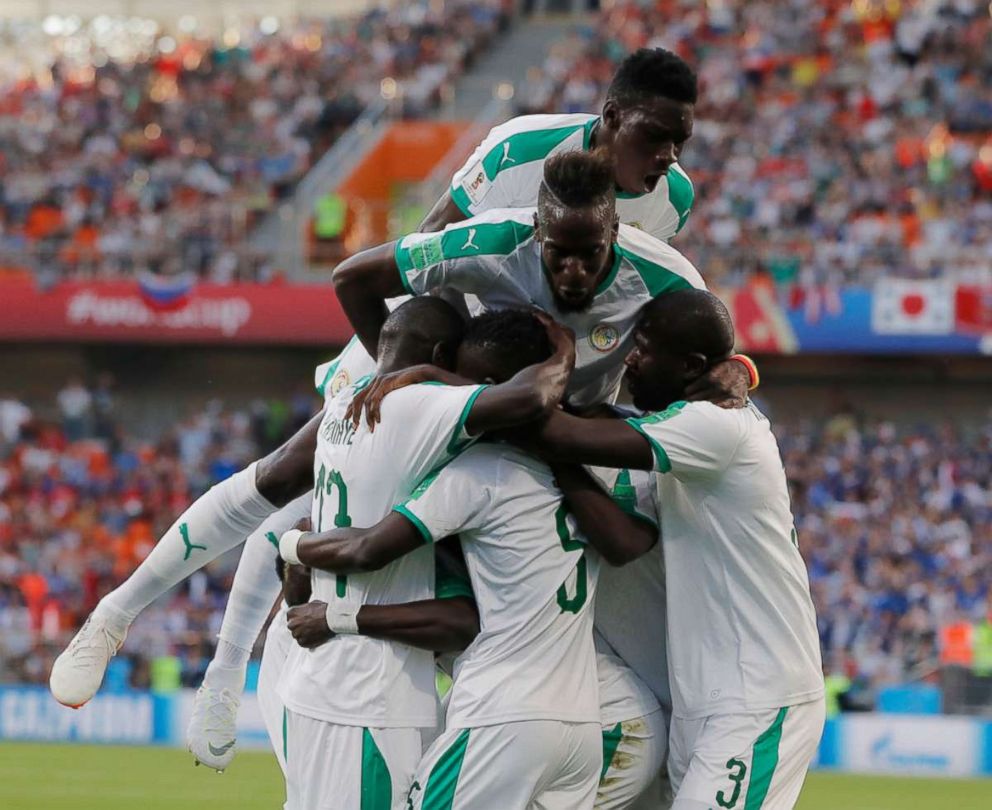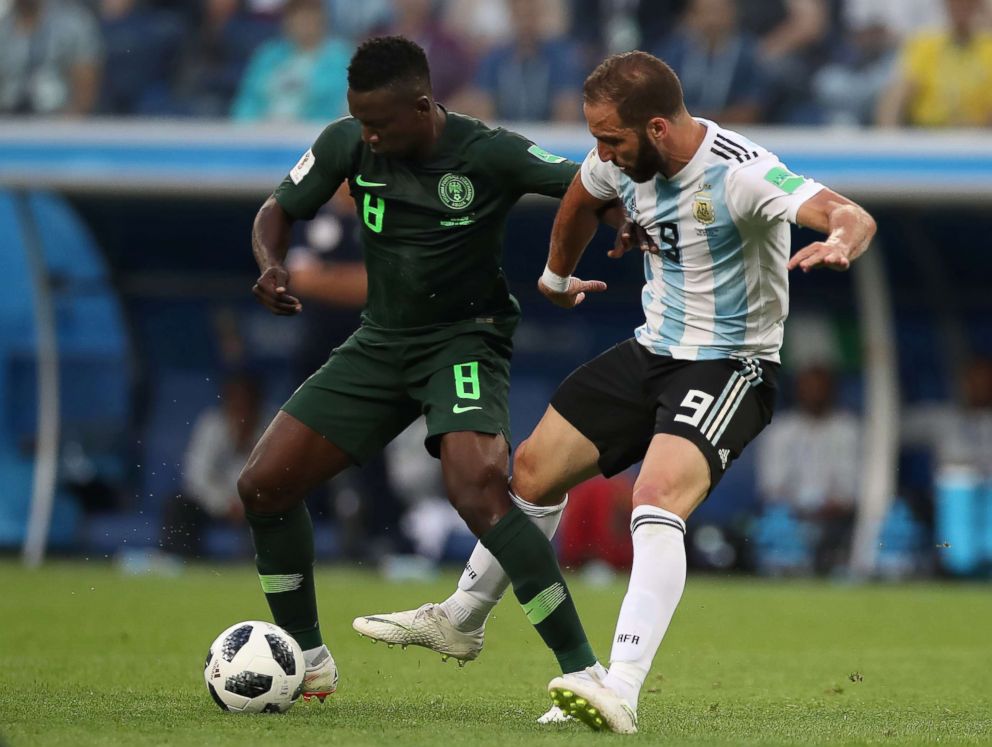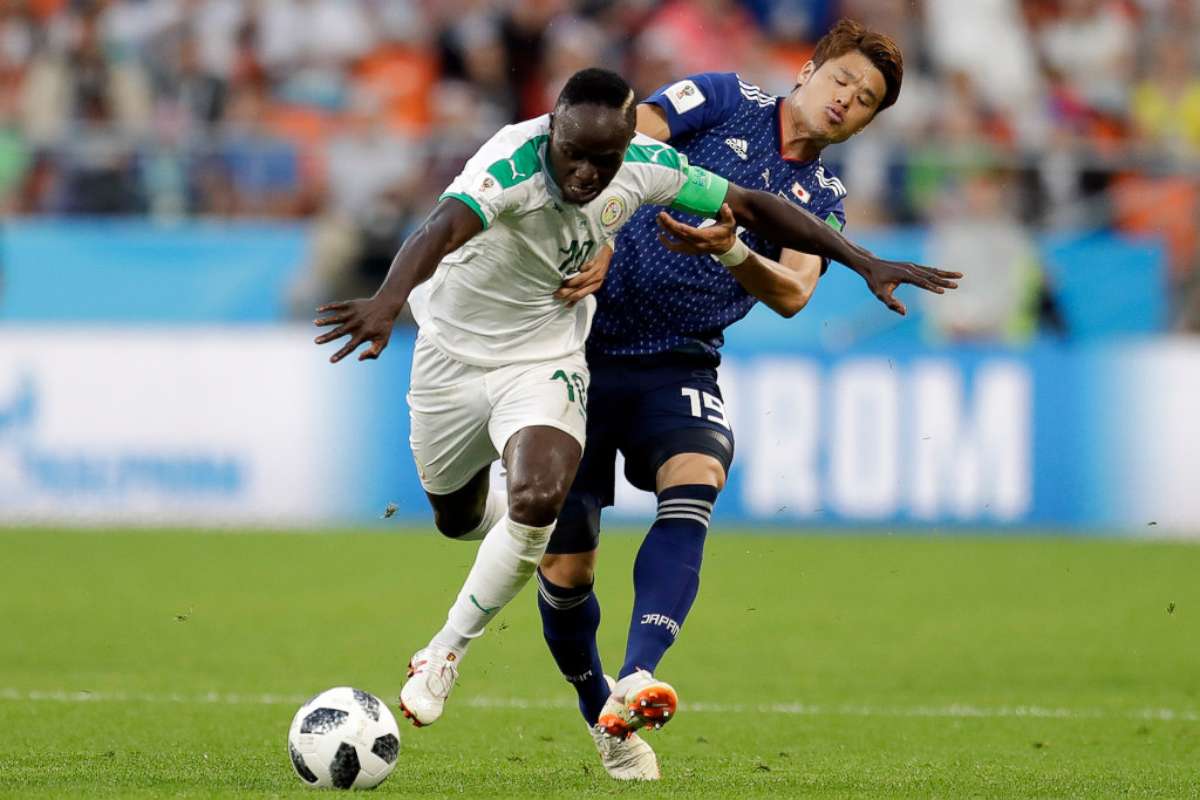How the World Cup inspires and unites the African diaspora like no other sport
Countries across Africa get behind their teams.
Flashback.
Summer 2010.
I'm sitting in the living room of my Somali home with hilib ari [braised lamb] cooking on the stove and my mother’s recitation of the Quran playing in the halls of the house.
We are all sitting on the couch, dealing with a newly-found resentment for Uruguay -- though we do not know where to even locate it on the map. Teeth chattering, hand in hand, we come together and pray for Ghana, a country on the opposite end of Africa from Somalia, and the last African team competing in the 2010 World Cup.
There is a unifying power in playing soccer. Being arguably the most accessible sport with use of only a ball and one’s foot, it is the most popular sport -- with an estimated four billion fans and 260 million players around the world.

Every four years, the power of soccer to gather people together and build community is seen worldwide. From America to Russia, Colombia to Spain, more than three billion people around the globe tune in to witness the game that brings us together: the World Cup.
Although there is a large representation of countries worldwide, there has always been one consistent factor regarding representation at the World Cup: the lack of African countries.
Lizzie Farida, contributor at OkayAfrica, said that “the struggle to get recognized is the same for all African teams."
"Egypt was the first African team to participate in the world cup in 1934.”
It wasn’t until 1970 that an African nation secured one spot at the World Cup.
“Before 1970, Africa and Asia only had one spot in the World Cup between them,” Farida said. “Only...an African boycott of the World Cup in 1966 finally allowed Africa to secure one spot in the World Cup.”
While the number of African teams may be small, the spirit of fans from the African diaspora is sky-high. This year alone, only five teams come from Africa: Nigeria, Senegal, Egypt, Morocco, and Tunisia.
Although the number of African countries in the World Cup may be slim, the pride and joy that has risen up from fans across the African diaspora is unmatched. It is this pride and joy that unites the diaspora; in these trying times of police brutality, famine, and all other global chaos, the World Cup has become a unique way that the African diaspora can come together.

“People who are part of the diaspora recognize that they are interconnected, in part, through a series or range of oppressive structures and systems that exist across the world,” said Clint Smith, a writer, avid tweeter, and PhD candidate at Harvard.
Whether you’re a Ghanaian rooting for Nigeria, or an African-American representing in your Senegal jersey, there are no longer borders that separate us -- we’re all African.
“The brilliance about football is that it’s a sport that tugs at the heartstrings," Farida said. "Emotion is something we all have in common, and through football, it brings it out in us."
“The joy of scoring a match-winning goal at the final seconds of a game, the despair of missing out on a penalty kick -- they are emotions that speak to and unite people.”

A huge part of this growing unity is social media -- specifically Twitter. Each day a game is played, tweeters from all over the world provide social and political commentary, jokes, and sorrows -- based on how the team they are rooting for is performing.
A sacred moment in World Cup history for the African diaspora is the Ghana vs. Uruguay game in 2010. Luis Suarez of Uruguay slapped away a potential goal from Ghana’s Dominic Adiyah with his hand -- a goal that would have made Ghana the first African team to make it to World Cup’s semi-finals.
I was 12 years old when it happened, and my heart still aches a bit when I think about it -- both how history could have been made that day, yet how symbolic that hand block by Suarez felt.
We are all tied to an originating lineage in Africa that you see throughout the world and in our art, culture, music and foods.
That moment carries so much emotion -- living in a world where black folks are told to work twice as hard only to receive half as much -- the soccer field almost feels like a place where we can escape that reality. But when Suarez blocked Adiyah’s winning goal with merely his hand, it struck a pain into the African diaspora that we are all too familiar with: letting go of something that was meant to be ours.
“it was heart-breaking to say the least,” Farida said. “A lot of Ghana fans and Africans in the diaspora feel that Ghana was absolutely robbed of a chance to go on to the semi-finals -- the first African team that would have done so.”
We are not defined, however, merely by wins or losses; the beauty of the World Cup is in the way we continue to unite. At a time where protests and marches are common events that bring us together, the World Cup is a time when we can lean on one another on a more lighthearted campaign.
“We are all tied to an originating lineage in Africa that you see throughout the world and in our art, culture, music and foods,” Smith said.
“That’s what ties us all together.”
And as Senegal competes this morning, they walk on the field with the diaspora on their back.
Muna Mohamed is an intern at Good Morning America. She currently studies Politics, Media, and Identity at Tufts University.



